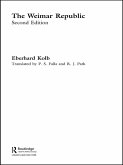In 1919 the Treaty of Versailles stripped Germany of its overseas colonies. This sudden transition to a post-colonial nation left the men and women invested in German imperialism to rebuild their status on the international stage. Remnants of an earlier era, these Kolonialdeutsche (Colonial Germans) exploited any opportunities they could to recover, renovate, and market their understandings of German and European colonial aims in order to reestablish themselves as "experts" and "fellow civilizers" in discourses on nationalism and imperialism.
Revenants of the German Empire: Colonial Germans, Imperialism, and the League of Nations tracks the difficulties this diverse group of Colonial Germans encountered while they adjusted to their new circumstances, as repatriates to Weimar Germany or as subjects of the War's victors in the new African Mandates. Faced with novel systems of international law, Colonial Germans re-situated their notions of imperial power and group identity to fit in a world of colonial empires that were not their own. The book examines how former colonial officials, settlers, and colonial lobbies made use of the League of Nations framework to influence diplomatic flashpoints including the Naturalization Controversy in Southwest Africa, the Locarno Conference, and the Permanent Mandates Commission from 1927-1933. Sean Wempe revises standard historical portrayals of the League of Nations' form of international governance, German participation in the League, the role of interest groups in international organizations and diplomacy, and liberal imperialism. In analyzing Colonial German investment and participation in interwar liberal internationalism, the project challenges the idea of a direct continuity between Germany's colonial period and the Nazi era.
Dieser Download kann aus rechtlichen Gründen nur mit Rechnungsadresse in A, B, BG, CY, CZ, D, DK, EW, E, FIN, F, GR, HR, H, IRL, I, LT, L, LR, M, NL, PL, P, R, S, SLO, SK ausgeliefert werden.









